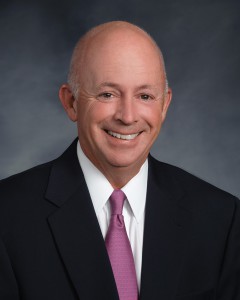Each year, the California Attorney General’s office is required to release an executive summary of Proposition 65 private settlements brought by trial lawyers in the state. This summary has been released each year since 2000, summarizing the total penalties, attorney fees, and other related funds collected, accompanied by a brief description of actions taken to remedy the alleged violations.
The key takeaway every year: certain individuals and organizations collect huge sums of money by filing shakedown Prop. 65 lawsuits across the state. Although voters approved Proposition 65 in 1986 to protect the public from potentially harmful chemicals, these private settlements illustrate that these frivolous lawsuits have instead turned the law into a lucrative pay day for plaintiffs’ attorneys in California.
Here are the numbers from 2015: there were 582 settlements, totaling payments of $26,226,761. Of this $26.2 million, non-contingent civil penalties accounted for 19% ($5,102,341), payments in lieu of penalty were 13% ($3,295,479), all while attorney fees and costs accounted for a supermajority of the dollars collected: 68% ($17,828,941). Just like every year, the attorneys are generating millions in fees from shakedown lawsuits, and our small businesses are paying the price.
Digging deeper into the numbers, these settlement amounts become even more disturbing. One attorney, belonging to a group of trial lawyers in this shakedown business, Anthony Held cashed in on 66 private settlements in 2015, totaling $2,139,650—with $1,695,350 (80%) of the settlement going straight into his pocket. Not a bad living on the backs of small business, right?
When looking year-to-year, it is somewhat encouraging to note that the percent of private settlements going to attorney’s fees has slightly decreased in recent years—from hovering in the low 70 percent range to now the high 60s. With that said, the broader issue of Proposition 65 litigation appears to only be getting worse in the near term. Between new regulations proposed by Office of Environmental Health Hazard Assessment (which we are opposing with a large coalition), and new chemicals being added to the Prop. 65 list every year, the threat of a frivolous lawsuit to small business is still alive and well.
Regulators and policymakers in Sacramento regularly appear tone deaf to the burdens small businesses face every day in this state. When presented with common-sense reforms to help small businesses comply with these complex regulations, the majority party in Sacramento regularly shuts them down. Last year, Assemblyman Brian Jones introduced AB 1252, which would have provided businesses a 14 day period to correct minor signage violations without costs fines or lawsuits. This reasonable reform died in its first policy committee.
Rather than encourage trial lawyers to make luxurious lifestyles on the backs of small businesses with frivolous lawsuits, our policymakers should work on solutions to lower the cost of doing business in this state.
Tom Scott is the State Executive Director for NFIB California, which has 22,000 dues-paying small business members across the state.


